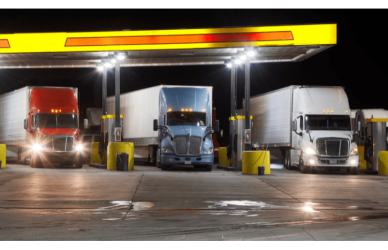Today, long-haul trucks are significantly more efficient than their predecessors of three decades past. However, in the push towards decarbonization, federal and local regulators are putting pressure on America’s trucking industry to go beyond major efficiency gains achieved in recent decades. To maintain their compliance with new regulations, OEMs are being tasked with perfecting cutting-edge technologies that will reduce emissions from long-haul trucks even further – perhaps too hastily.
“When you’re looking at emissions and equipment standards that are going on across the country—whether it’s California or whether it’s federal EPA-based—there are concerns,” David Heller, VP of safety and government affairs for Truckload Carriers Association, said during a video interview with FleetOwner. “Specifically in the long-haul trucking sector, because, guess what, you’ve put a regulation out there that is prescribing carriers to start changing their fleet over to these emission-friendly pieces of equipment that don’t exist yet.”
He went on to say that a large part of the problem is that there is no true zero-emission equipment on the market today for long-haul fleets. While Congressional Republicans are attempting to hold up the more stringent emission regulations for heavy-duty trucks, Heller and TCA members want to ensure that the lower-emission vehicles are safe and reliable for freight transportation.
“You’re talking about an investment in equipment that is a lot of money to lay out,” he said. “We want to do that in the right way to make sure we have equipment that functionally works—and isn’t parked on the roadside with freight that has to get transferred to another truck. They’re literally putting the cart before the horse on this rulemaking without having everything properly discovered, invented, and tried before putting the rulemaking out there.”
The trucking and freight industries could be drastically changed in the near future due to more rigorous emissions standards, as a divided Congress is unlikely to enact major legislation during the remainder of Biden’s presidency. With significant regulatory shifts on the horizon, these sectors will have to stay vigilant for upcoming changes that may affect their operations.
The Department of Labor is taking action to restore workers’ rights, working towards avoiding the consequences of a Trump-era policy which made it easier for businesses to classify employees as independent contractors. This could potentially affect owner operators hauling freight across different carriers.
The Biden administration believes its new rule would preserve fundamental worker rights and provide consistency for regulated entities. Several trucking associations have voiced concern that these changes could upend the long-standing and vital role independent contractors play within freight movement in the U.S.
“There’s not a truckload carrier out there that didn’t start because somebody went out and bought one truck and started delivering freight,” Heller added. “This is the business model. This is the American dream. A majority of the industry started this way, and it is a threat to that business model—whether it is the state of California with AB5 or the Department of Labor’s rule.”
Source: FleetOwner








